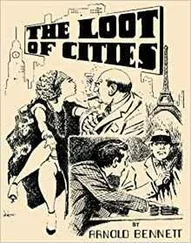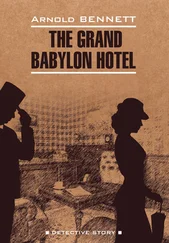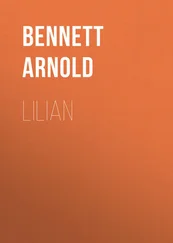Arnold Bennett - These Twain
Здесь есть возможность читать онлайн «Arnold Bennett - These Twain» — ознакомительный отрывок электронной книги совершенно бесплатно, а после прочтения отрывка купить полную версию. В некоторых случаях можно слушать аудио, скачать через торрент в формате fb2 и присутствует краткое содержание. Жанр: foreign_prose, foreign_antique, foreign_language, на английском языке. Описание произведения, (предисловие) а так же отзывы посетителей доступны на портале библиотеки ЛибКат.
- Название:These Twain
- Автор:
- Жанр:
- Год:неизвестен
- ISBN:нет данных
- Рейтинг книги:5 / 5. Голосов: 1
-
Избранное:Добавить в избранное
- Отзывы:
-
Ваша оценка:
- 100
- 1
- 2
- 3
- 4
- 5
These Twain: краткое содержание, описание и аннотация
Предлагаем к чтению аннотацию, описание, краткое содержание или предисловие (зависит от того, что написал сам автор книги «These Twain»). Если вы не нашли необходимую информацию о книге — напишите в комментариях, мы постараемся отыскать её.
These Twain — читать онлайн ознакомительный отрывок
Ниже представлен текст книги, разбитый по страницам. Система сохранения места последней прочитанной страницы, позволяет с удобством читать онлайн бесплатно книгу «These Twain», без необходимости каждый раз заново искать на чём Вы остановились. Поставьте закладку, и сможете в любой момент перейти на страницу, на которой закончили чтение.
Интервал:
Закладка:
He answered with a smile:
"What price 'the mania for owning things'? … Would you like me to?" There was promise in his roguish voice.
"Oh! I should. I've often thought of it," she said eagerly. And at the same time all her gestures and glances seemed to be saying: "Humour me! I appeal to you as a girl pouting and capricious. But humour me. You know it gives you pleasure to humour me. You know you like me not to be too reasonable. We both know it. I want you to do this."
It was not the fact that she had often thought of the plan. But in her eagerness she imagined it to be the fact. She had never seriously thought of the plan until that moment, and it appeared doubly favourable to her now, because the execution of it, by absorbing capital, ought to divert Edwin from his lithographic project, and perhaps render the lithographic project impossible for years.
She added, aloud:
"Then you wouldn't have any rent to pay."
"How true!" said Edwin, rallying her. "But it would stand me in a loss, because I should have to pay too much for the place."
"Why?" she cried, in arms. "Why should Maggie ask too much just because you want it? And think of all the money you've spent on it!"
"The money spent on it only increases its value to Maggie. You don't seem to understand landlordism, my child. But that's not the point at all. Maggie won't ask any price. Only I couldn't decently pay her less than the value she took the house over at when we divided up. To wit, £1,800. It ain't worth that. I only pay £60 rent."
"If she took it over at too high a value that's her look-out," said the harsh and unjust Hilda.
"Not at all. She was a fool. Albert and Clara persuaded her. It was a jolly good thing for them. I couldn't very well interfere."
"It seems a great shame you should have to pay for what Albert and Clara did."
"I needn't unless I want to. Only, if I buy the house, £1,800 will have to be the price."
"Well," said Hilda. "I wish you'd buy it."
"Would she feel more at home if he did?" he seductively chaffed her.
"Yes, she would." Hilda straightened her shoulders, and smiled with bravado.
"And suppose Mag won't sell?"
"Will you allow me to mention it to her?" Hilda's submissive tone implied that Edwin was a tyrant who ruled with a nod.
"I don't mind," he said negligently.
"Well, one of these days I just will."
Edwin departed, leaving the book behind. Hilda was flushed. She thought: "It is marvellous. I can do what I like with him. When I use a particular tone, and look at him in a particular way, I can do what I like with him."
She was ecstatically conscious of an incomprehensible power. What a rôle, that of the capricious, pouting queen, reclining luxuriously on her lounge, and subduing a tyrant to a slave! It surpassed that of the world-renowned pianist!..
But soon she became more serious. She had a delicious glow of seriousness. She overflowed with gratitude to Edwin. His good-nature was exquisite. He was not perfect. She could see all his faults just as plainly as when she was angry with him. But he was perfect in lovableness. She adored every aspect of him, every manifestation of his character. She felt her responsibility to him and to George. It was hers to bring grace into their lives. Without her, how miserable, how uncared for, those two would be! They would be like lost children. Nobody could do for them what she did. Money could not buy what she gave naturally, and mere invention could not devise it. She looked up to Edwin, but at the same time she was mysteriously above both him and George. She had a strange soft wisdom for them. It was agreeable, and it was proper, and it was even prudent, to be capricious on occasion and to win by pouting and wiles and seductions; but beneath all that lay the tremendous sternness of the wife's duty, everlasting and intricate, a heavy obligation that demanded all her noblest powers for its fulfilment. She rose heroically to the thought of duty, conceiving it as she had never conceived it before. She desired intensely to be the most wonderful wife in the whole history of marriage. And she believed strongly in her capabilities.
She went upstairs to put on another and a finer dress; for since the disastrous sequel to the At Home she had somewhat wearied in the pursuit of elegance. She had thought: "What is the use of me putting myself to such a lot of trouble for a husband who is insensible enough to risk my welfare unnecessarily?" She was now ashamed of this backsliding. Ada was in the bedroom finicking with something on the dressing-table. Ada sprang to help as soon as she knew that her mistress had to go out. And she openly admired the new afternoon dress and seemed as pleased as though she was to wear it herself. And Ada buttoned her boots and found her gloves and her parasol, and remembered her purse and her bag and her handkerchief.
"I don't quite know what time I shall be back, Ada."
"No'm," said Ada eagerly, as though saying: "Of course you don't, m'm. You have many engagements. But no matter when you come back we shall be delighted to see you because the house is nothing without you."
"Of course I shall be back for tea."
"Oh, yes'm!" Ada agreed, as though saying: "Need you tell me that, m'm? I know you would never leave the master to have his tea alone."
Hilda walked regally down the stairs and glanced round about her at the house, which belonged to Maggie and which Edwin had practically promised to buy. Yes, it was a fine house, a truly splendid abode. And it seemed all the finer because it was Maggie's. Hilda had this regrettable human trait of overvaluing what was not hers and depreciating what was. It accounted in part, possibly, for her often very critical attitude towards Edwin. She passed out of the front-door in triumph, her head full of wise schemes and plots. But even then she was not sure whether she had destroyed-or could ever destroy, by no matter what arts! – the huge dangerous lithographic project.
As soon as she was gone, Ada ran yelling to the kitchen:
"Hooray! She's safe."
And both servants burst like infants into the garden, to disport themselves upon the swing.
CHAPTER VIII
THE FAMILY AT HOME
When Hilda knocked at the door of Auntie Hamps's house, in King Street, a marvellously dirty and untidy servant answered the summons, and a smell of greengage jam in the making surged out through the doorway into the street. The servant wore an apron of rough sacking.
"Is Miss Clayhanger in?" coldly asked Hilda, offended by the sight and the smell.
The servant looked suspicious and mysterious.
"No, mum. Her's gone out."
"Mrs. Hamps, then?"
"Missis is up yon," said the servant, jerking her tousled head back towards the stairs.
"Will you tell her I'm here?"
The servant left the visitor on the doorstep, and with an elephantine movement of the knees ran upstairs.
Hilda walked into the passage towards the kitchen. On the kitchen fire was the brilliant copper pan sacred to "preserving." Rows of earthenware and glass jars stood irregularly on the table.
"Her'll be down," said the brusque servant, returning, and glared open-mouthed.
"Shall I wait in the sitting-room?"
The house, about seventy years old, was respectably situated in the better part of King Street, at the bottom of the slope near St. Luke's Church. It had once been occupied by a dentist of a certain grandeur, and possessed a garden, of which, however, Auntie Hamps had made a wilderness. The old lady was magnificent, but her magnificence was limited to herself. She could be sublimely generous, gorgeously hospitable, but only upon special occasions. Her teas, at which a fresh and costly pineapple and wonderful confectionery and pickled salmon and silver plate never lacked, were renowned, but the general level of her existence was very mean. Her servants, of whom she had many, though never more than one at a time, were not only obliged to be Wesleyan Methodists and to attend the Sunday night service, and in the week to go to class-meeting for the purpose of confessing sins and proving the power of Christ, – they were obliged also to eat dripping instead of butter. The mistress sometimes ate dripping, if butter ran short or went up in price. She considered herself a tremendous housewife. She was a martyr to her housewifely ideals. Her private career was chiefly an endless struggle to keep the house clean-to get forward with the work. The house was always going to be clean and never was, despite eternal soap, furniture-polish, scrubbing, rubbing. Auntie Hamps never changed her frowsy house-dress for rich visiting attire without the sad thought that she was "leaving something undone." The servant never went to bed without hearing the discontented phrase: "Well, we must do it to-morrow." Spring-cleaning in that house lasted for six weeks. On days of hospitality the effort to get the servant "dressed" for tea-time was simply desperate, and not always successful.
Читать дальшеИнтервал:
Закладка:
Похожие книги на «These Twain»
Представляем Вашему вниманию похожие книги на «These Twain» списком для выбора. Мы отобрали схожую по названию и смыслу литературу в надежде предоставить читателям больше вариантов отыскать новые, интересные, ещё непрочитанные произведения.
Обсуждение, отзывы о книге «These Twain» и просто собственные мнения читателей. Оставьте ваши комментарии, напишите, что Вы думаете о произведении, его смысле или главных героях. Укажите что конкретно понравилось, а что нет, и почему Вы так считаете.












